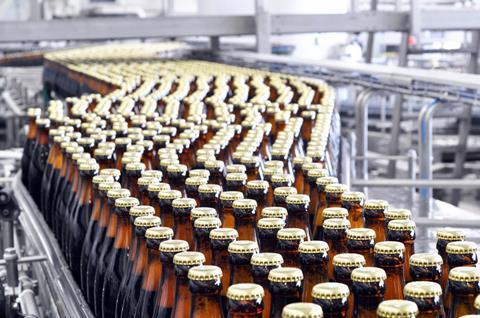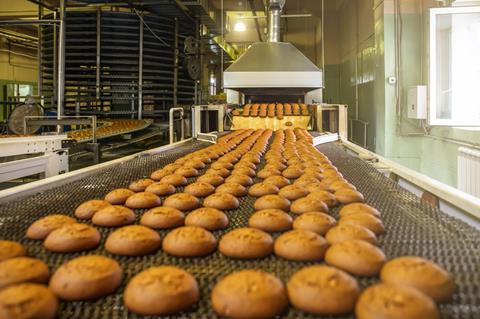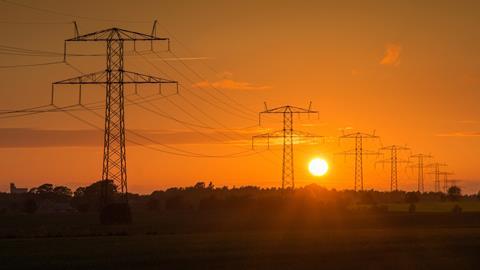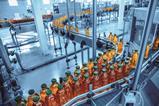As energy expenses fluctuate, food and beverage manufacturers need to find innovative ways to remain competitive while maintaining product quality, competitive pricing and profitability.
Energy consumption in the food and beverage industry is considerable, encompassing many processes. From refrigeration and cooking to packaging and transportation, energy is the lifeblood of operations. With rising food costs and energy prices increasing due to global events, the need to find alternative energy solutions has never been greater for the food and drinks industry.
Managing energy cost volatility is crucial for food and beverage manufacturers. Here are several strategies to mitigate the impact of fluctuating energy prices:
Strategies for managing energy cost volatility
Undertake energy efficiency improvements
Carrying out regular energy audits allows businesses to assess all aspects of the production process, from machinery operation to HVAC systems, and can pinpoint inefficiencies that may be driving up energy costs unnecessarily.
Investing in energy-efficient equipment and technology, such as LED lighting, high-efficiency motors, and smart thermostats can also help reduce a business ‘overall costs in the long run.

Explore renewable energy sources
The adoption of renewable energy technologies – including solar, battery storage, wind and heat pumps – reduces fossil fuel reliance and helps create clean energy.
“The biggest challenge in the food and beverage industry is the decarbonisation of heat and moving away from fossil fuel boilers towards the electrification of heat using technologies like heat pumps,” explains James Cottrill, director of B2B sales at E.ON UK.
Explore the possibility of entering a Power Purchase Agreement (PPA) , which provides a long-term contract with renewable energy providers to lock in rates and hedge against price spikes. PPAs allow companies to predict and manage energy costs more effectively, shielding them from sudden market fluctuations.

Generate revenue and reduce costs with a Demand Response programme
By reducing energy consumption at certain times, a business can beat – and even benefit from – the winter energy market volatility, and increased non-commodity costs.
E.ON’s customers use Demand Side Response (DSR), an intelligent way to use energy. By using DSR, a business can turn up, down, or shift its energy demand in real-time to reduce energy costs, generate revenues and contribute to security of supply in the UK.
If a company is serious about environmental responsibility, DSR is a natural choice that supports the move towards a low-carbon energy system, boosts net zero ambitions and helps to balance demand on the national grid.

Invest in energy management systems
By implementing monitoring tools throughout the production process a business can use energy management software to track consumption patterns, identify inefficiencies, and predict future energy needs. This allows greater control over energy expenses and make data-driven decisions to improve energy efficiency.
E.ON Optimum is a cloud based energy platform that gives its customers energy intelligence, which can help to reduce their consumption and costs with ease, enabling them to make faster and better decisions for their business and to meet their sustainability goals.

Learn how E.ON’s sub metering and energy management systems have delivered lasting financial benefits for Welsh pies and pastry manufacturer Peter’s Food Service
Based at its manufacturing facility in Merthyr Tydfil, Wales, Peter’s Food Service bakes bespoke pies and pastries for customers including supermarkets, sports stadia, pubs and restaurants, and food-to-go outlets.
As one of the biggest employers in the area, serving more than 13,500 consumers annually, it is one of the biggest distributors of cold meats in the UK, with a £90m annual turnover and more than 900 product lines. Its large 14-acre site means that refrigeration is a significant expense for the business and energy is a constant topic of discussion in board meetings.
After carrying out a site audit, E.ON was able to propose a series of energy efficiency measures that would help Peter’s reach its cost-cutting target and reduce its carbon emissions in the process.
Using the latest innovations in cloud-based data analytics E.ON was able to monitor and control Peter’s energy in real-time. A full sub-metering system (which included 44 new meters) was installed to monitor performance and identify further energy savings.
The project achieved annual energy cost savings of 15% in the first year, beyond the targeted level of savings, and led to improved energy awareness across the business.
Richard Spencer, head of construction, operations and maintenance at E.ON UK says: “The close collaboration we had with Peter’s Foods Service was essential to ensuring that we continue to add value to Peter’s.”
Energy costs are a significant factor in food and beverage manufacturing, affecting costs, competitiveness, and sustainability. By managing energy usage more effectively, food and drinks companies can reduce energy costs, improve operational efficiency, and work towards sustainability goals. In an industry that relies heavily on energy-intensive processes, adopting energy-efficient technologies and practices not only supports profitability but also enhances a business’ reputation and resilience in an evolving market.
To find out more about how E.ON can help you save on energy costs, click here.























